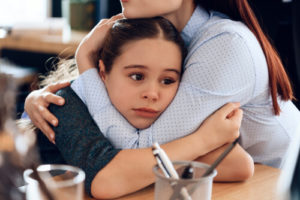
If you’re one of many parents planning to divorce in Connecticut this year, you’re likely concerned about how it will impact your children. Understanding that it will affect them is the first step toward helping them adapt to their new lifestyle. It would be nice if there were a predetermined way to parent that would guarantee success, but the reality is that parenting is often as challenging as much as it is rewarding.
No two families are the same; therefore, just because your friend’s kids had trouble moving past divorce doesn’t mean yours will too. Consequently, the fact some children seem to experience little stress when their parents get divorced doesn’t necessarily mean your kids will react the same. There are several things you can do from the start to provide the tools and support to help your children move forward toward an emotionally healthy, happy future.
Tell them, but don’t tell them too much
Studies show parents who separate without first telling their kids what’s about to happen increase the chances of their children experiencing high levels of stress. Most family counselors agree it’s better to prepare your children that a separation is about to occur before a parent moves out of the house. However, giving your kids too much information can also cause stress. A good rule of thumb is to stick to the basics and keep adult details between adults.
Parental conflict prompts stress in children
Studies also show that young children, such as those of toddler age, show signs of stress when present to parental conflict situations. It’s understandable you and your spouse may disagree about certain issues when preparing for divorce settlement; however, the less you fight about it in front of your children, the better.
Children fare best when parents cooperate
The good news is you can customize your parenting plan to fit your immediate family needs and long-term parenting goals. If you and your spouse agree to cooperate and compromise as needed, your children will know you both have their best interests in mind.
Keep lines of communication open
Your children may each react differently to your divorce. You can expect a wide range of emotions, sometimes fluctuating within the same day. As long as your children know they can come to you to share their thoughts without worrying that you’ll be upset if they are angry or frustrated, they are more likely to feel loved and supported as you build new lifestyle together.
There are also ways to avoid confrontation when it comes time to exchange the kids for visitation. If you and your former spouse need to keep your distance from each other because being in the same room always leads to arguments, you can include instructions in your parenting plan that specify monitored or neutral drop-off locations, such as your children’s school, where only one parent needs to be present. Many Connecticut parents seek experienced guidance as they create new parenting plans and help their children come to terms with divorce.



